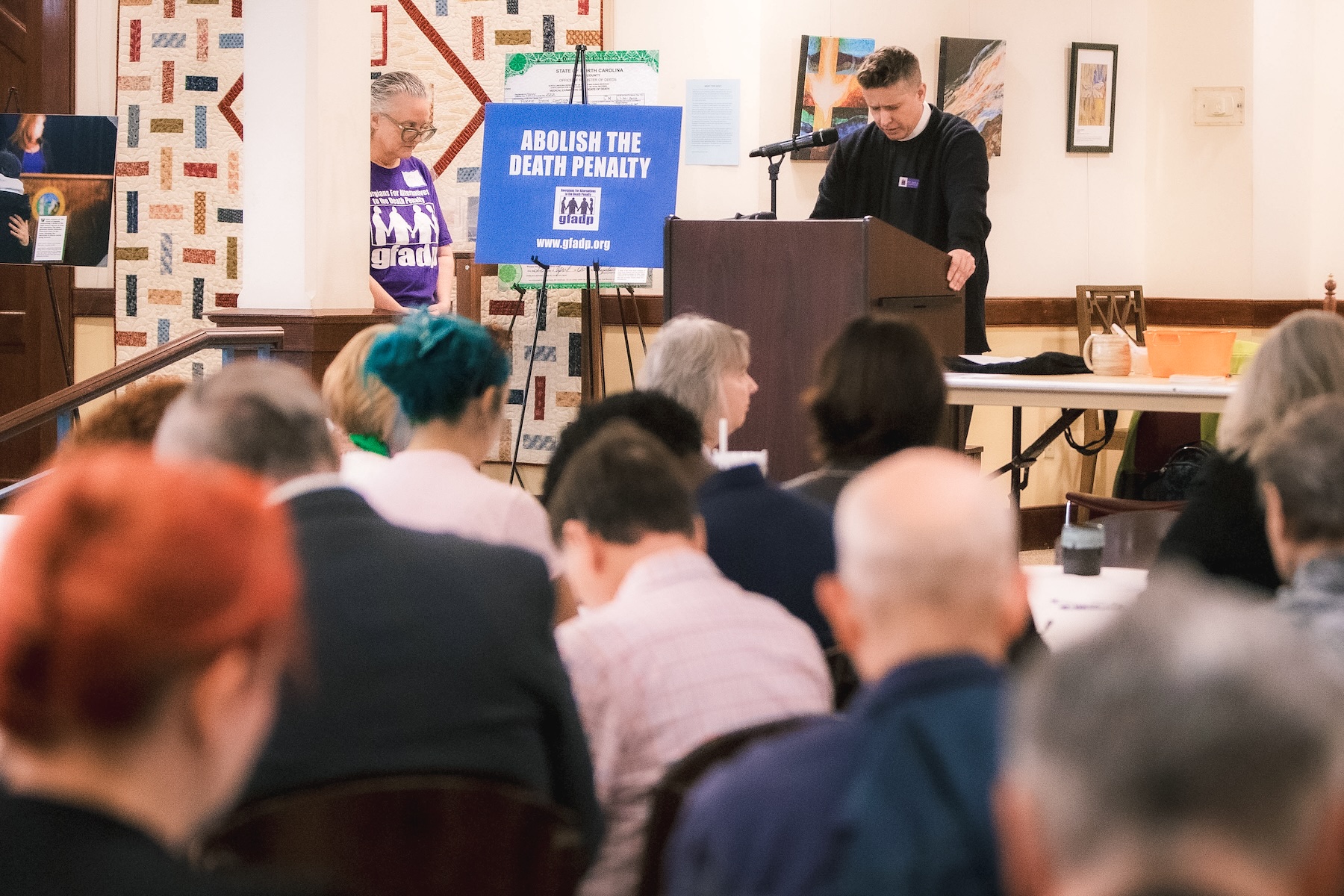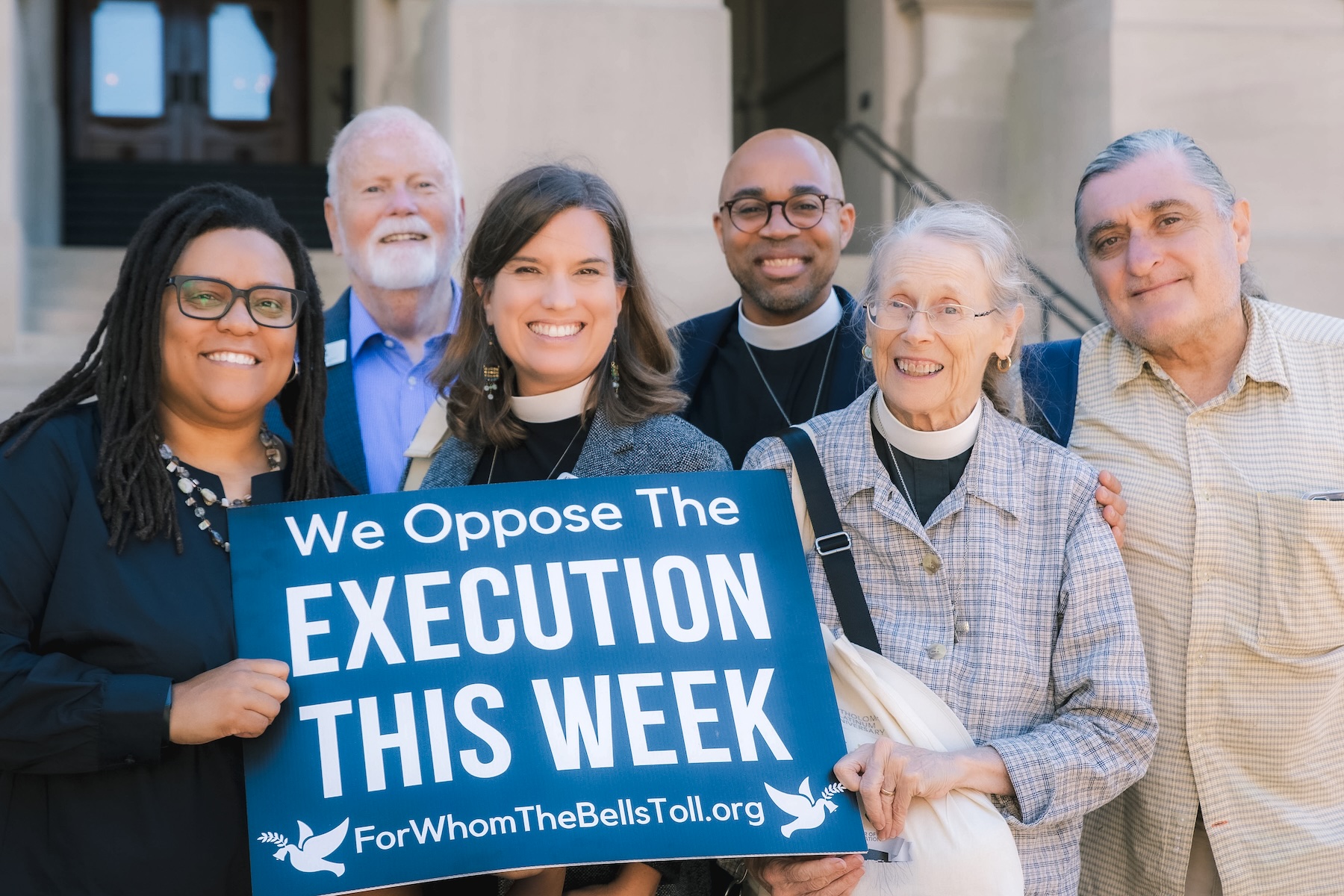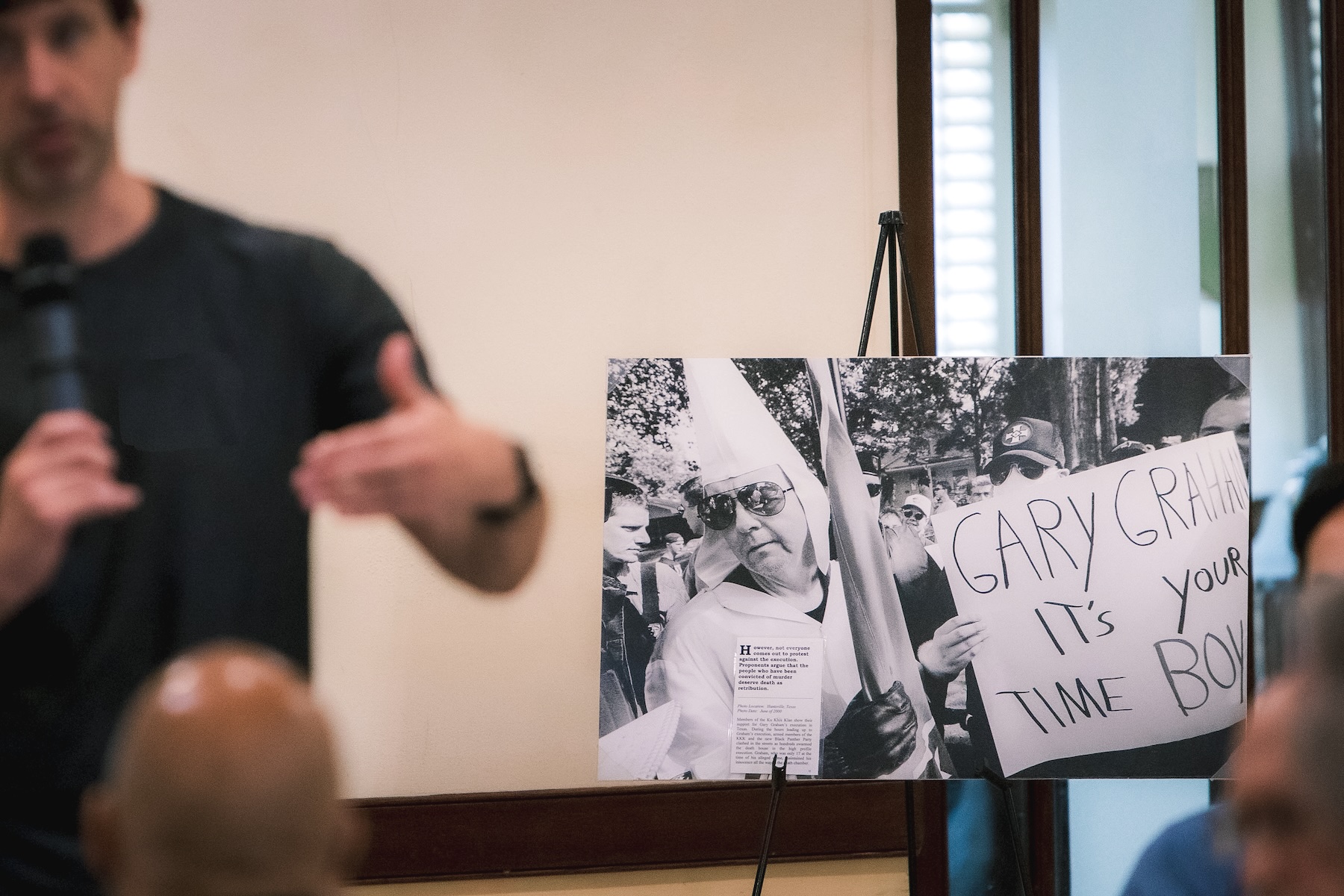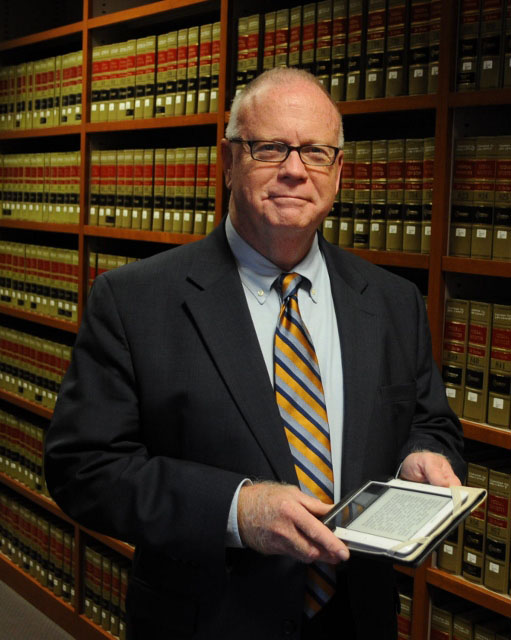
Advocates for changes to Georgia’s death penalty law announced they are expanding their efforts.
During a press conference on the steps of the Georgia Capital, Cathy Harmon-Christian, Executive Director of Georgians for Alternatives to the Death Penalty, said the expanded coalition’s goals over the next 12 months are to better educate Georgians about problems with Georgia’s death penalty law and work for legislative reform.
“We need to come together as people of faith and citizens who believe in compassion and justice,” said Harmon-Christian. “This is not just a policy issue; it’s a moral one.”
Prior to the announcement, the coalition of Georgians for Alternatives to the Death Penalty, Faith Leaders of Color Coalition, Georgia Catholics Against the Death Penalty, Georgia Interfaith Public Policy Center, and the Jewish Community Relations Council of Atlanta held a morning educational event at Central Presbyterian Church.

Many of the more than 60 people who attended the session said they came for the opportunity to cross-pollinate ideas and bond for future actions.
They had questions about the death penalty ranging from the role of prosecutors, the process for passing laws, why the pardon system is cloaked in secrecy, to whether legislators really take citizen input seriously.
The Rev. Kim Jackson, an Episcopal priest who is a state senator from DeKalb County, spoke about her experiences in leading both faith communities and legislators toward understanding and addressing Georgia’s death penalty law.
Jackson said she first got involved with the issue during her time at Candler School of Theology when a fellow seminarian told her about the Troy Davis case. “Karl Kroger came to a meeting and started talking about how we should be doing something to stop executions.”
“I grew up in a Black Baptist church context in the south, real country, real conservative. And I don’t know that we’d ever talked about the death penalty, but I just always assumed that it was something that we would agree with,” she recalled. “And so, he really challenged me to begin to think about what our faith has to say about the death penalty?”
It was a pivotal moment that inspired Jackon to organize a vigil and advocate for compassion and grace and begin along a path she continues as priest and politician.
From her work to overcome legislative hurdles in the Georgia Senate, Jackson stressed the need for bipartisan engagement and maintaining respectful communication between faith leaders and legislators.
“When we come together as a community, we can create change,” she said, underscoring the value of collaborative efforts in fighting for the inherent dignity and potential of every person.
“I want to encourage you all, as you think about going into your own faith communities, that you think about the language, the stories, the words that need to be said, the songs that need to be sung, that help people come along, not just for some on the death row, but for every single person that is on the row and for all of their families. And because ultimately, if we are about justice, we know that killing someone is not just,” Jackson said.
Jackson and other speakers said the coalition’s first priority is amending Georgia’s process for determining whether a death row inmate has intellectual disabilities.

The execution of Willie Pye in March, despite evidence of intellectual disability, has spurred advocates to demand urgent reform of Georgia’s “harsh and unjust” death penalty laws.
“We must protect the rights and dignity of individuals with intellectual disabilities, and we call on faith communities to contact their legislators in support of this bill,” Harmon-Christian said.
According to Cornell Law School, Georgia’s death penalty law on intellectual disability is an outlier among states with the death penalty. While Georgia was the first to prohibit executing people with intellectual disabilities, its high burden of proof leaves defendants struggling to prove their condition. “Our current laws are harsh and unjust,” Harmon-Christian said.
In contrast, other death penalty states have adopted less strict standards for deciding intellectual disability in capital cases. Since the 2002 U.S. Supreme Court barring executing the intellectually disabled, these states have found capital defendants to be intellectually disabled.

Another priority was the need for community education, engagement, and awareness.
A planned Journey of Hope Tour through Georgia in 2025 will feature family members of murder victims sharing their stories, challenging the misconception that executions provide closure. The 2024 Tour held 26 events in cities throughout Georgia.
“We need to move away from retribution and focus on restorative justice,” Harmon-Christian explained. “By creating opportunities for dialogue and healing between victims’ families and offenders, we can pave the way for a more compassionate and just society.”
Speakers from Christian, Muslim, and Jewish faith communities all said their faiths value human life and that execution is wrong because it eliminates the potential for redemption, restoration, and reconciliation and disproportionately affects the poor and vulnerable.
“There’s no valid justification for the death penalty when alternative and more humane forms of punishment exist,” Harmon-Christian asserted. “State-sanctioned execution is morally wrong, and it’s time for Georgia to join the growing number of states that have abolished it.”
Episcopal Archdean Carole Maddux, founder of the Georgia Interfaith Public Policy Center, encouraged those attending to sign up with GIPPC for legislative updates.
“They’ll keep you up to date on what’s happening in the legislature around particular bills. So, if a hearing does come up or something of that nature, they’ll send you the information. If you signed up, they’ll send you the information to say, hey, this is coming up tomorrow. This is coming up today. Why don’t you hop on the video? Or why don’t you call your legislator? So, it’s a great way to get involved directly in this process. It’s really easy,” Maddux said.
Harmon-Christian and others in the expanded coalition say a comprehensive approach: from driving legislative and social change, to uniting communities, engaging faith leaders, and advocating for policy reform, may be their best chance yet to build a more compassionate and just criminal justice system in Georgia.

